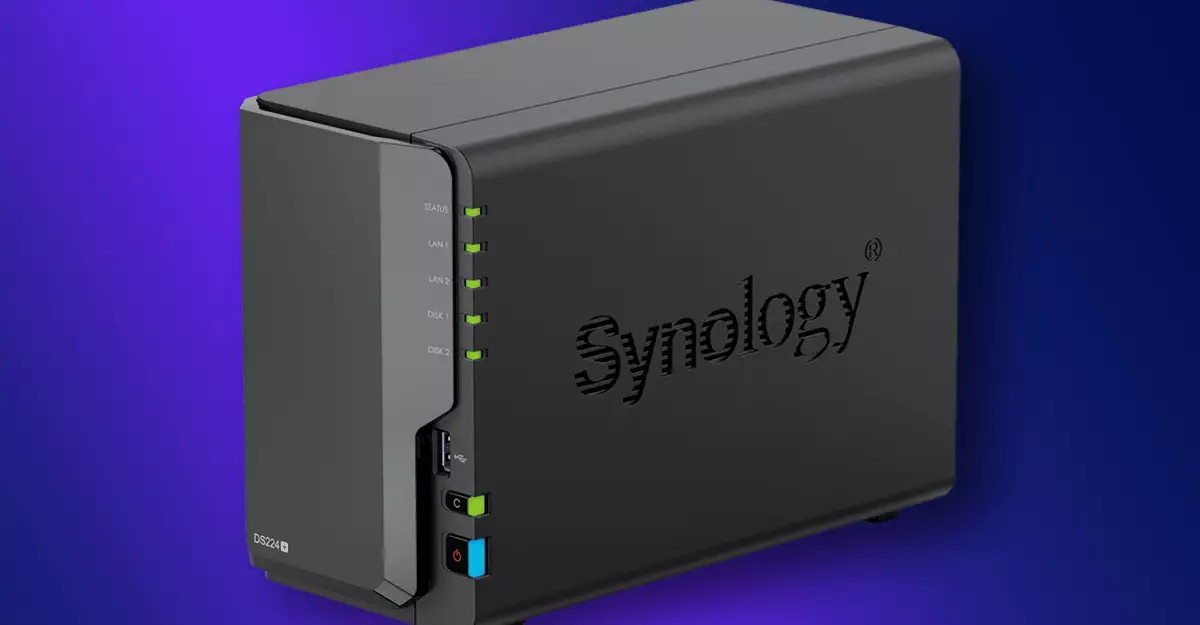Synology, a prominent name in the network-attached storage (NAS) market, is poised to make significant changes to its future models by imposing restrictions on third-party hard drives. While current NAS users can rest easy knowing their devices remain unaffected, this move raises critical questions about consumer choice and the accessibility of affordable storage solutions. Starting in 2025, Synology will restrict compatibility primarily to Synology-branded drives and those certified through a specific approval process, limiting users’ flexibility in managing their hardware investments.
The announcement confirming these developments was communicated to Ars Technica, signaling a strategic pivot for the company as it aims to enhance product reliability and performance. However, it is essential to dig deeper into the potential implications of this restriction beyond the surface level. As technology enthusiasts, users often enjoy exploring various hardware options, and limiting compatible drives could stifle innovation and deter buyers from choosing Synology’s future devices.
Understanding the Rationale
According to Synology, their directive arises from extensive internal testing, which suggests that drives adhering to a strict validation process exhibit lower risks of failure and compatibility issues when integrated with their NAS systems. While the notion of enhanced reliability is undoubtedly appealing, it casts a shadow over the principle of user autonomy. Consumers must weigh the benefits of supposedly greater stability against the potential loss of choice, which has defined the tech landscape for decades.
Moreover, one has to question the authenticity of Synology’s claims about third-party drives. The tech community is rife with examples of successfully using various brands and models without compromising performance. By focusing on a narrower range of certified drives, does Synology inadvertently signal a distrust in the extensive testing that independent developers and providers conduct? It feels reminiscent of a protective measure that may inadvertently stifle competition and the user experience.
Impact on Future NAS Ownership
The shifts in drive compatibility will surely impact stakeholders across the board, from large organizations reliant on expansive storage solutions to individual consumers seeking reliable backup systems. Synology has emphasized that the upcoming restrictions do not apply to their J- and Value-series devices or the 2024 and earlier Plus series. Thus, existing users can continue to benefit from a broader array of storage options, but new users face the prospect of being limited to Synology-approved drives that may not align with their budgetary constraints or hardware preferences.
This situation prompts concerns regarding astronomical costs, particularly if Synology-branded drives come with a premium price tag. When consumers transition toward proprietary systems, they often encounter increased expenses that can impede their ability to use these tools efficiently. The freedom to mix and match hardware has historically served as a significant advantage for users, allowing them to optimize their storage solutions and minimize overall costs. Reducing those options could ultimately result in an unwelcome financial burden for potential customers.
Consumer Accountability and the Market Response
As the technology sector evolves, the question remains: how will consumers respond to Synology’s changes? With several viable NAS competitors existing in the landscape, including brands that prioritize open compatibility, consumers may seek alternatives that do not impose restrictive measures. Synology’s decision could either alienate long-standing loyal users or challenge the market to rethink compatibility regulations. As the technology community is increasingly called upon to advocate for user rights and autonomy, we may witness a growing backlash driving change within the industry.
Developers and tech experts alike have long argued for transparency and innovation, emphasizing the importance of fostering an environment where consumers have the right to choose their hardware. As Synology looks to the future and establishes its new restrictions, it must remain cognizant of a market that prizes flexibility and encourages exploration. Ultimately, the balance between ensuring product performance and empowering users to craft personalized storage solutions could shape the future trajectory of the NAS arena in ways we cannot yet foresee.

